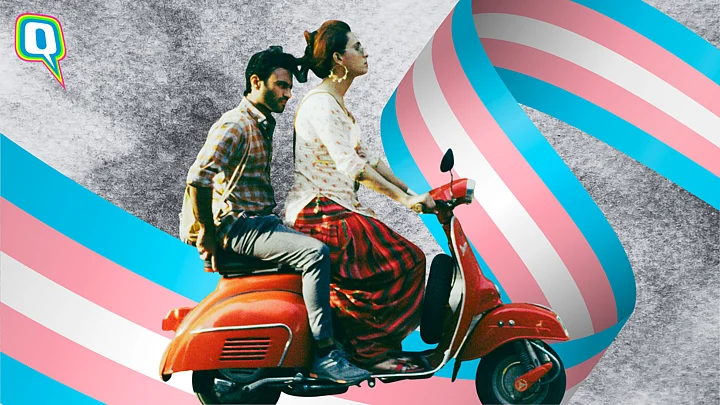Cinema has always gone hand-in-hand with a sense of community: whether it's bunking school to go watch a film with your squad or screaming at the theatre screen when Iron Man dies in Avengers: Endgame. Watching a film alone is surely enjoyable but watching it as a community is an unparalleled experience.
The LGBTQIA+ community, however, has famously been denied a mainstream space — in cinema and otherwise. Especially in the Southeast-Asian landscape, films have solely treated their transgender characters as punchlines or deranged antagonists.
With 21st century desi cinema barely scratching the surface of queer and trans representation, we've only now begun seeing people like us on the silver screen.
Besides, with the growth of OTT films and their attempts at inclusion, queer folks mostly get to watch queer films in isolation.
So, when a leading LGBTQIA+ platform in Mumbai held a screening of possibly the best queer film Southeast Asia has had to offer, I couldn't wait to grab the opportunity.
Before being screened at a notable Mumbai club on 1 June, the first day of Pride Month, Saim Sadiq’s debut feature, Joyland had raked up volumes of accolades and appreciation. Trans activists around the world hailed the film for its well-rounded and complex portrayal of queerness.
But nothing could have prepared me for how heartbreaking the film was.
My favourite part about Joyland is something the filmmaker pointed out: everyone under the patriarchal structure is miserable, even the patriarch. He denies himself so much joy! Patriarchy benefits no one and the depiction was really heartbreaking.A cinephile who attended the screening
The narrative essentially revolves around Haider, a meek and timid man belonging to a conservative Pakistani family who chances upon the opportunity to work as a cabaret dancer. While his wife, Mumtaz, navigates the pressures of domesticity and an unwanted pregnancy, Haider falls for Biba, a feisty transgender woman trying to carve her own space as a dancer.
While most queer films don't hold back while showcasing the gritty oppressions that make up a patriarchal society, Joyland uses a special kind of restraint.
To watch an independent Pakistani film with a lively and joyful trans wedding was already revolutionary; but to be able to watch it, surrounded by queer and trans folks was as healing as it was essential.
Contrasting the cis-heteropatriarchy's gloom with scenes of vivacious queer joy was a treat to watch on the big screen.
The scenes of queer joy really spoke to me. Especially the chosen trans family system was so wholesome and entertaining! As opposed to how mainstream films portray transgender houses in india.A drag artist who attended the screening
As the end credits rolled, the theatre was engulfed in palpable silence.
It was no secret that the film left us with a feeling of despair; but the shared sense of heartbreak led to a unique form of catharsis.
My favorite part about this screening, however, was the flurry of discussions that followed. To be able to share my thoughts and insights about Joyland with trans and queer trailblazers in the city was a dream I didn't know I had.
A notable trans doctor and artist who attended the screening said, "I loved how Haider’s sexuality was never a discussion point. Most films and shows having a cis man fall in love with a trans woman get pre-occupied by whether the man is straight or not… Joyland didn’t make a big deal of his labels. Even the choreography of the sex scene was so well done that I was left wondering if they hired an intimacy coordinator."
Every character has been portrayed in such a well-rounded manner that you feel for them, no matter queer or straight…you even feel for the patriarch’s struggle with his disability and age.Co-founder of a leading LGBTQIA+ platform
This screening of Joyland also pushed me to seek more experiences like these. At a time when India is still debating whether queer citizens are deserving of basal liberties like marriage and adoption, the only way for us to still thrive amidst the bigotry and ignorance is through community.
(At The Quint, we question everything. Play an active role in shaping our journalism by becoming a member today.)
